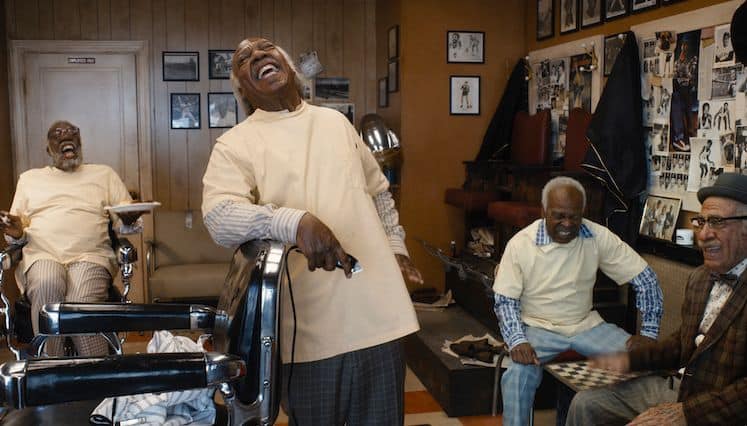
The first question that should pop into anyone’s mind regarding “Coming 2 America” is a simple one.
Why? Or, better yet, why now?
The sequel never answers either question, nor does it deliver anything like the laughs generated by the 1988 original. It’s powered by some charming players and fits of inspiration which never coalesce into anything real. At its worst, it piles on the woke platitudes and reheats the better gags from the original film.
Why bother?
Eddie Murphy and Arsenio Hall return as Prince Akeem Joffer and his faithful friend Semmi, still living in the wondrous African nation of Zamunda. The prince wants to secure the royal lineage as his father (James Earl Jones) appears at the end of his life.
Prince Akeem has three wonderful daughters but no son to inherit his crown … until he learns of a child he spawned years ago during his trip to Queens, N.Y. It’s a tortured way to enter the story, and one of many laugh-free sequences featuring Leslie Jones.
RELATED: Eddie Murphy’s ‘Mr. Church’ Clings to Cloying Cliches
The “bastard” child is Lavelle (Jermaine Fowler), a struggling young man from, you guessed it, Queens, who is delighted to learn of his royal heritage.
At first.
Can Lavelle make a suitable prince for his father, a man he just met? Will a neighboring strong man (Wesley Snipes, under utilized but fierce) coax the Prince to an arranged marriage to keep the peace between their nations?
More importantly, why would you gather so much talent and give them so little to do? The film lines up Tracy Morgan and Jones as Queens residents swept up in the royal drama, but they’re both one-note and screechy, their charms kept off screen.
The original film’s key selling point? The fish out of water sequences with Akeem and Semmi learning a very different culture. That’s all but erased from the film, with the story set primarily in Zamunda. Seeing Lavelle experience the curious wonders of his new home can’t manufacture a single laugh.
We do revisit the colorful Queens barbershop characters, once again brought to life by Murphy and Hall in thick disguises. We’ve already seen three Barbershop movies since 1988’s “Coming to America,” though. Each of which offers better banter than what we hear in this “America.”
These moments, like the blink and you’ll miss ’em cameos by “America” returnees John Amos and Louie Anderson, feel rushed and perfunctory.
The sequel as a whole feels strained and unnecessary. That’s punishing since “C2A” director Craig Brewer helped bring Murphy back to his glorious self in 2019’s “Dolemite Is My Name.”
The two conjure little of that irreverence here. Brewer’s knack for musical sequences, shown in his gloriously raw “Hustle & Flow,” enlivens a few scenes but the comic energy is missing.
Naturally, the film goes out of its way to punish the franchise for embracing Zamunda’s male-dominated society. Akeem’s oldest daughter wants to claim the family throne, not a son her father barely knows. And, of course, each of the three daughters can take down a man twice their size in combat.
The film repeats the original movie’s joke about how the help bathe the royal family. That cannot stand in our woke age, so we see Jones’ character get a hunky manservant doing the honors for her.
What a sick burn on the PatriarchyTM!
We also suffer through an unnecessary scene where Lavelle is insulted by a casually racist white man (Colin Jost).
Murphy’s presence may be the film’s biggest disappointment. His character is alternately wise and backward, constantly being cowed by the women in his life. There’s no arc, no compelling through line to explore. He’s an afterthought in his own film, and he looks bored, too.
Can you blame him?
The original “Coming to America” banked on the Murphy/Hall chemistry, another element mostly shelved in the sequel. Instead, we get a replay of the, “I should marry this person, but my heart wants me to marry that person” theme with little to distinguish it.
Nostalgia lovers may love seeing the old gang back together again. Everyone else with watch and wonder, “why did they even bother?”
The saddest part comes near the end. A character starts riffing about movie sequels in a derogatory way, a wink-wink moment meant to get us on the film’s side.
Sorry, that only works if the sequel in question can stand on its own. “Coming 2 America” never comes close.
HiT or Miss: It’s easy 2 miss this forgettable, unnecessary sequel
